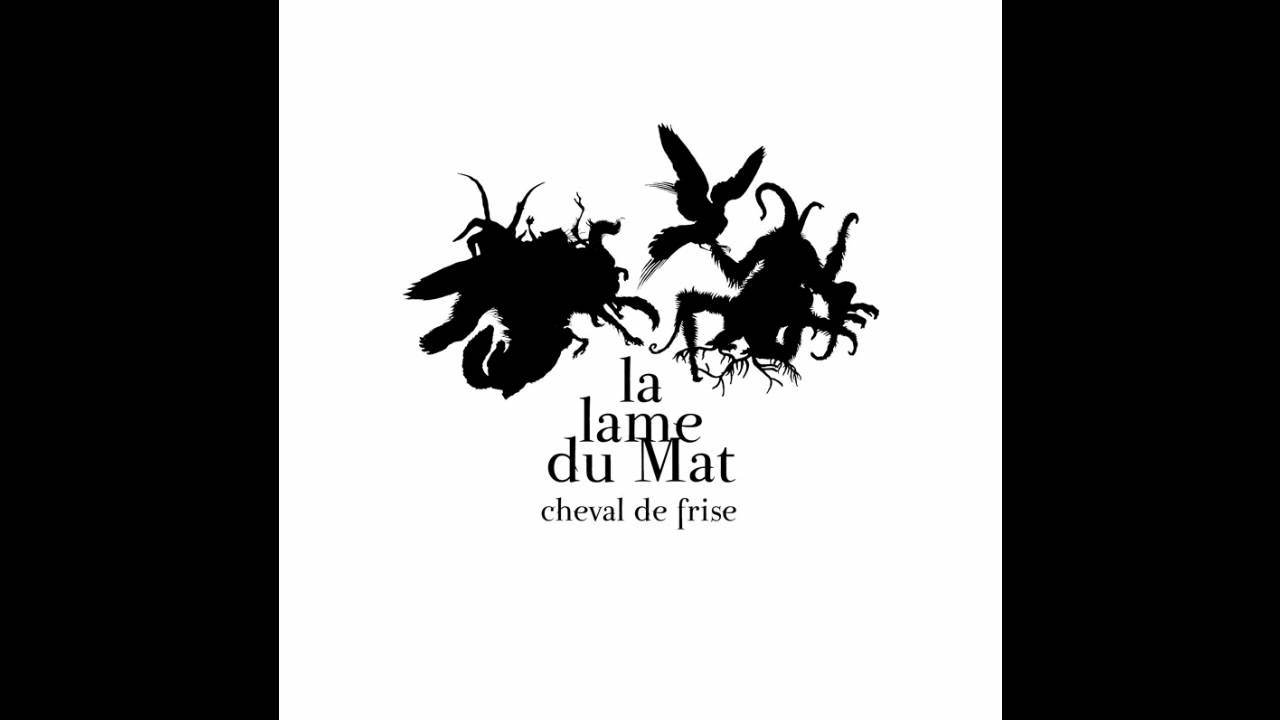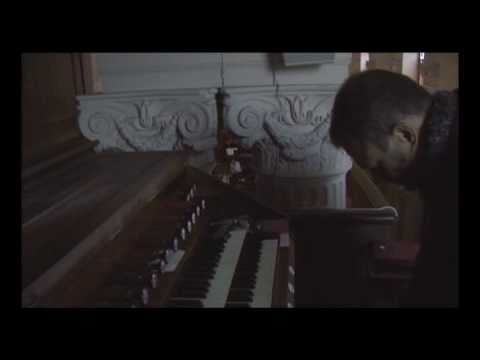After the wild tangle of lines that constituted the music of his drums-and-guitar duo Cheval de Frise, L’Ocelle Mare has seen Thomas Bonvalet, with the assistance of his right-hand man Adrian Riffo, venture into more spacious, contemplative (contemplative of space) areas.
Having previously recorded in locales including the Gare du Nord in Paris, for his latest, Serpentement, Bonvalet has opted to use a protestant temple in Bergerac. This doubtless contributes to its sense of cloistered concentration, but his gift for rhythm and the seemingly unforced allusions to various folk musics means that the album never feels excessively ascetic.
The title of this latest missive harks back to previous effort Engourdissement – as if he’s been mapping out states, conditions, of being and playing – but it’s also somewhat misleading. ‘Serpenter’ in French means, probably quite evidently, to meander or ‘snake’ but Serpentement doesn’t feel meandering at all. For all that we’re in electro-acoustic, experimental (although not necessarily improvisational, as I thought) territory, the album’s nine tracks are focused and potent, even urgent – the opener (which we just have to refer to as ‘Serpentement 1’, as there don’t seem to be any titles) has the chunky tocking of a metronome as its spine and also features hand claps and stamping. ‘Serpentement 3’, meanwhile, is also shadowed by a more distant ticking. The whole thing is wrapped up in just over 20 minutes. The clock is running, the rattlesnake is shaking its rattle.
I asked Bonvalet a few questions, including one on how he performs live – for which he gave a much more detailed and precise response than I expected. The album version of the track is embedded above so you, dear reader, can listen along.
Can you tell me about your working relationship with Adrian Riffo – this seems to be something you’ve maintained, how important is it for achieving what you want?
Thomas Bonvalet: There is a real complicity between Adrian and me. I started working with him in 2005, for the mixing of La Lame du Mat, the last recording from my previous project, Cheval de Frise… and since then I’ve done absolutely everything with him. Without his enthusiasm, he ingenuity and his support I have no doubt that I wouldn’t have been able to take my recordings in this direction, to be so exacting and precise…
How did you decide on the Protestant temple as a place to record? It says ‘principalement’ (‘mainly’) on the sleeve – where else did you record?
TB: I’ve played in the temple several times while participating in a sort of informal festival called MONC, once with my friend Simon Quéheillard and then again with the organist Jean-Luc Guillonnet. The people in charge of the temple are extremely welcoming and open and every time they’ve completely trusted us with the keys to the temple. So I was very familiar with the acoustics of the space and, in contrast to my previous recordings, I was looking for a unity of space for the recordings. Only three tracks were recorded elsewhere, these were concert recordings that were played back and re-recorded in the temple, which explains certain strange resonances and sonic incidents.
To what degree is anything on Serpentement ‘composed’ in advance?
TB: It’s not really improvised music but my tracks have a certain fluidity because I use sonic objects that I’m not really 100 per cent in control of… I know what they are capable of producing and I know how to trigger certain phenomena, but they have a life of their own and I can’t force them down a certain path. I can’t determine everything in detail but I can take charge of the overall form.
Was there anything you did in the recording of Serpentement that felt like progress – that you’d achieved something you hadn’t done, or hadn’t thought of doing, before?
TB: As I see it, my music develops in a slow and continuous way. The records are like islands without any real contours. I don’t in any case have the sense of it being a culmination.
The title Serpentement – firstly it suggests something a little unfocused (maybe even lazy!) but this album feels quite energetic and powerful to me. What did you have in mind? And does it relate back to Engourdissement? Are you exploring different states, ‘états d’âme’?
TB: Absolutely, thanks for picking up on that! There is definitely the idea of continuity and of a development of states… All the records in this project are linked to the seasons and states in that cycle.
What’s your attitude to the guitar at the moment? It’s not at all central to what you do as it was in Cheval de Frise.
TB: I have never really considered myself a guitarist. Before Cheval de Frise, I used to sing a bit, and I played bass and made some tape collages. I started playing guitar with that group and I got as far as I could with that tool… Maybe one day I’ll come back to it with a different approach. I don’t really know what it is I ‘play’ these days. I play a set up, and perhaps I’m also ‘played’ a bit as well.
The music on Serpentement seems to at least allude to different folk musics, including tango – how deliberate is this on your part?
TB: Part of my family lives in Argentina but I’m totally ignorant, as far as tango goes. I’ve often played and spent some time with my Argentinian friends from the band Radikal Satan, and after all these years they’ve undoubtedly had an impact on me, an influence of course! But nothing premeditated…
Do you still ever play with two or more people? If not, is that something you miss?
I played a little bit with Radikal Satan during our recent tour together, and I’ve just taken part in a new Powerdove recording with Annie Lewandowski and John Dietrich of Deerhoof. We’re hoping to be able to tour a bit with this trio next year. I’m more open to collaborations than in the past but they’re usually low-key contributions. I don’t want to overdo it, I’m someone who needs to proceed at a gentle pace.
Are you planning to play Serpentement live? How does that happen, practically?
Serpentement was recorded using my concert set-up, so the tracks have more or less the same form when they’re performed. I can describe the first track on the album, for example. There’s a clockwork metronome with a bell, and that’s amplified and tilted so that it produces a rhythm in triple time that carries on throughout the piece. I suck on the reed-plate of a harmonica with my mouth, modulating the sounds by means of a plectrum that’s held against the reeds. I turn on a little battery-powered amp that’s inside the drum of my banjo, placed up against the skin and connected to a mic that’s also pressed against the skin, and creating vibrations in the string that I can then modulate by applying pressure to the skin. I then put the harmonica reed in contact with the banjo skin and move it around, playing with the more distant sound of another microphone that’s been set up further away. I then put the banjo down and let it carry on vibrating by itself… I play a bit more of the reed-plate and then I clap my hands and stamp my feet before stopping everything suddenly. The only extra thing on the recording that I don’t play in concert is a sharp banjo note that doubles each bell-chime from the metronome throughout the track, but that doesn’t really change the structure. In any case there are no electronic sounds or pre-recorded parts, only the physical phenomena of acoustics and amplification, mechanical objects and live playing.
To read the first half of this month’s Rockfort column from last week, featuring an interview with EDH’s Emmanuelle De Hericourt, click here.
For more from Rockfort, you can target="out">visit the official site here and follow them on Twitter here. To get in touch with them, email info@rockfort.info.





